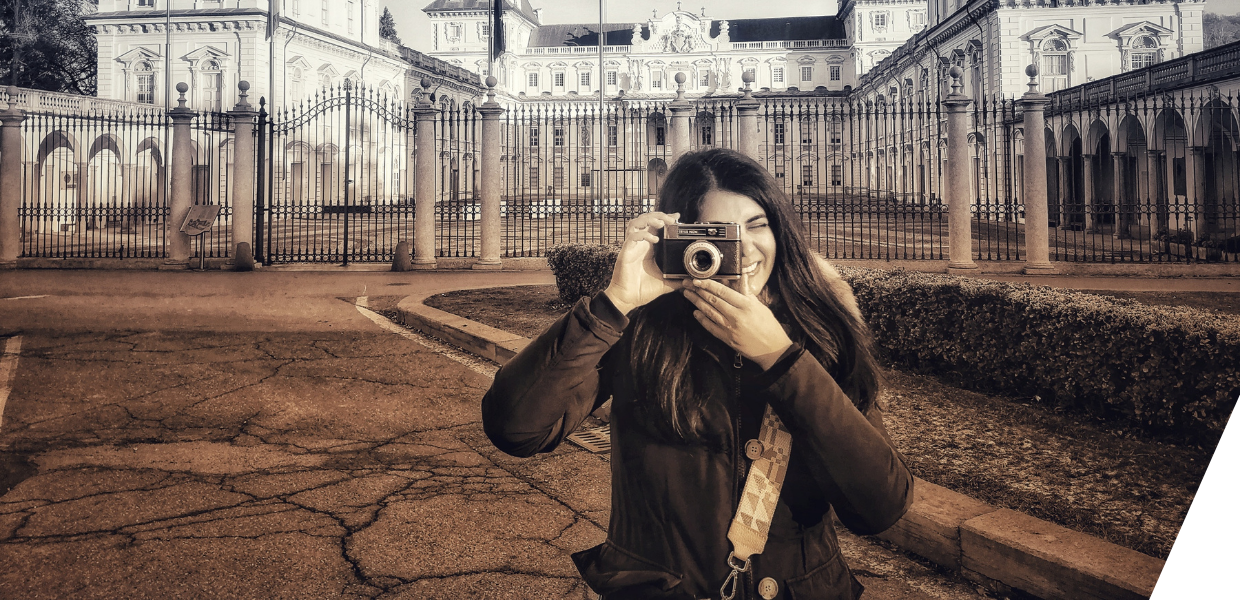How did you enter your profession?
I have always had a great passion for cultural heritage, and participated in work to preserve cultural sites since I was young. I am a graduate of Building and Architecture Engineering and during my studies in Italy and Spain, I became interested in metric survey techniques with digital solutions which added value to architectural heritage. For this reason, I started the path of academic research in the field of geomatics and digital humanities, working in Italy and Japan. During my PhD in Architectural and Landscape Heritage, I experimented with the use of historical archival images for the 3D digital reconstruction of lost monuments using Artificial Intelligence and photogrammetric techniques. I had the chance to use Europeana data, and starting from this experience, I wanted to find out more about the potential of this valuable data, both from a technical and historical perspective.
What are you currently working on?
I am currently working as a researcher participating in different interdisciplinary projects related to the field of digital humanities.
On the one hand, I am exploring ways of using historical archive images for the digital reconstruction of buildings and spaces in our cities that have disappeared or changed over time. This is in order to preserve their historical memory, but also to make citizens actively engage with their city’s history, compile personal memories and photos, and together develop a collective city memory. This is the case of my contribution to the Jena4D project for the browser application for mobile devices with a 4D representation of the entire city of Jena.
On the other hand, I work with archaeologists and museums (Hybrid Sustainable Worlds) to give technical support to the enhancement of archaeological heritage by creating virtual tours, VR and AR apps and 3D models of archaeological artifacts, useful both for the metric studies of the excavations and to show to tourists from every part of the world.
What are some of the challenges in your role? What are some of your favourite elements?
I am fully convinced that the use of digital techniques has great potential for the valorisation and conservation of cultural heritage, especially if it is in danger or destroyed, as is evident in recent days due to wars and emergency situations. However, to reach these objectives, in my opinion, there are two challenges to be addressed. The first one is the creation of a dialogue between all the experts of the different disciplines involved in the heritage valorisation process, both humanities and technologies. The second one is concerned with the data on the heritage, the difficulty in finding them and in their accessibility. Luckily Europeana offers a solution to these big themes.
What was your motivation for joining the Members Council?
I fully agree with the vision of Europeana. I have already joined the EuropeanaTech Community, and now I am so excited to be part of Europeana Network Association as a Members Councillor. It will be important to engage with experts from different disciplines and work together with the common goals of data digitisation and accessibility of resources to all. I will certainly contribute to this debate on how to use digital solutions to create inclusion and participation of the local communities raising awareness of the preciousness of their heritage.
What do you plan to do as a Members Councillor?
As a Members Councillor I would like to contribute to the Europeana community by bringing innovative ideas concerning the accessibility and visualisation of digital content. I am a great believer in making participation in the digitisation process accessible to everyone through open data and immersive and virtual ways to engage and attract people. Technology is giving a lot of attention to the metaverse and I think Europeana is a very good starting point to take cultural heritage in this direction.



